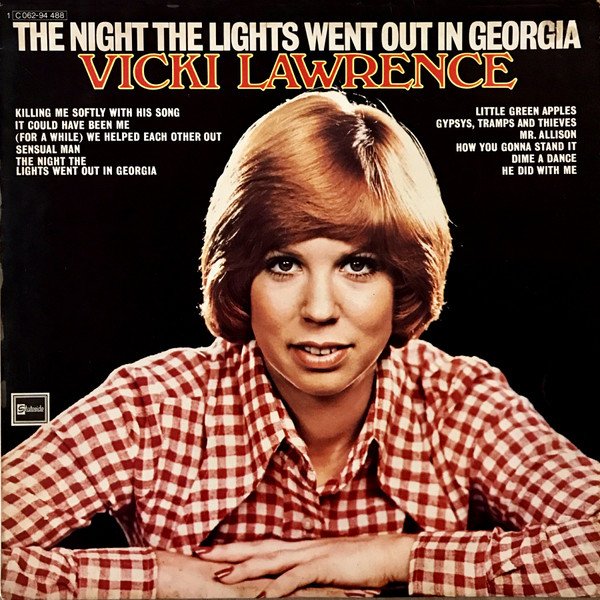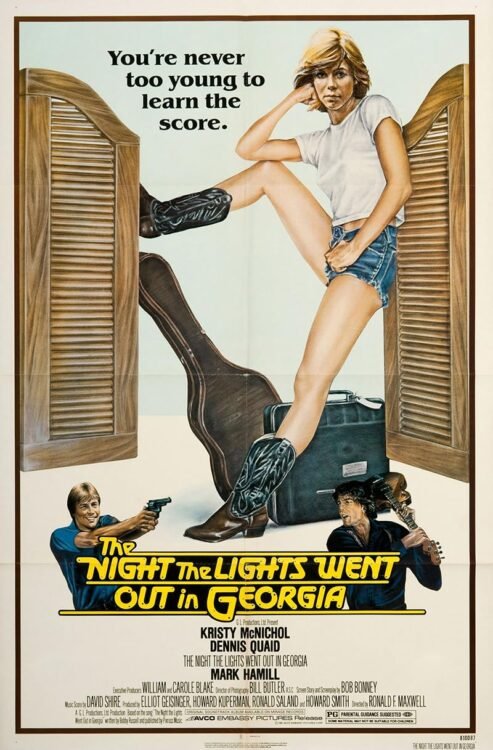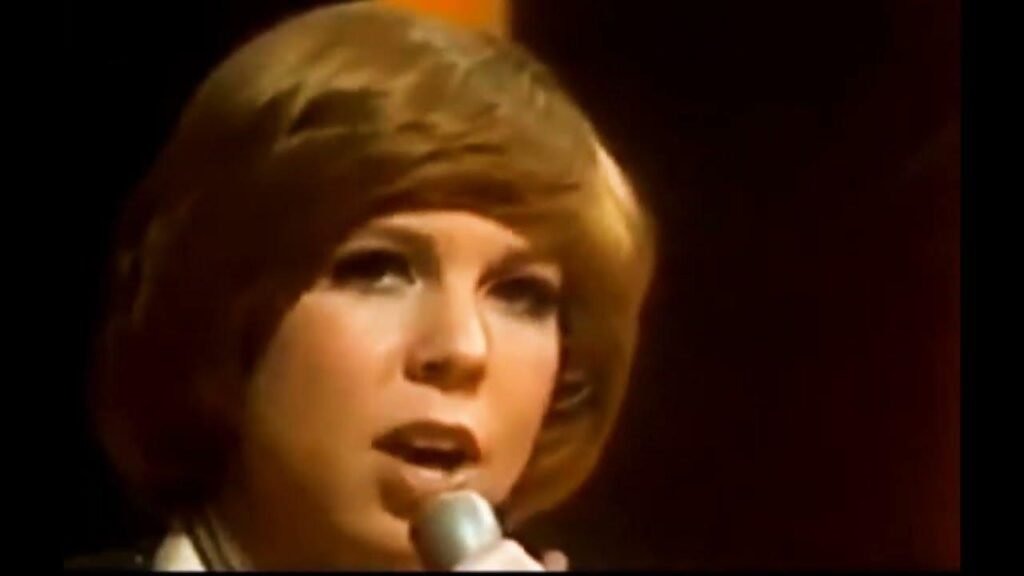The southern states of the U.S. have long been fertile ground for tales of love, betrayal, and justice.
But few songs capture the essence of the Southern Gothic genre as poignantly as The Night the Lights Went Out in Georgia.
With its haunting melody and chilling narrative, this ballad has left an indelible mark on the annals of music history. But what’s the story behind this iconic song? Let’s dive in.
The Tale Behind the Tune
At its core, The Night the Lights Went Out in Georgia is a gripping tale of betrayal, murder, and a miscarriage of justice.
The lyrics weave a narrative where a man, referred to as “Brother,” is wrongly accused and hanged for a crime he didn’t commit.
The real twist? The song’s narrator, the sister of the “innocent man,” reveals herself as the true culprit, having killed not just the man her brother was accused of murdering, but also her brother’s unfaithful wife.
The chilling confession, “Little sister don’t miss when she aims her gun,” leaves listeners with goosebumps every time.
The song begins with Brother returning home from a two-week trip to a place called Candletop.
He stops at Webb’s Bar for a drink before going home to his wife. There he meets his friend Andy Wolloe, who informs him that his wife has been cheating on him with “that Amos boy, Seth.”
Andy also admits that he himself had been with her as well. Brother gets angry and leaves the bar, while Andy goes home in fear.
Brother finds his wife gone and takes his father’s gun to confront Andy.
On his way there, he sees some footprints too small for Andy to make. He arrives at Andy’s house and finds him dead on the floor.
He fires a shot in the air to get the attention of the police, but ends up being arrested for Andy’s murder.
The judge declares him guilty without a fair trial and sentences him to death by hanging.
The song ends with the sister revealing that she was the one who killed both Andy and her brother’s wife, and that no one will ever find out.
The song’s chorus reflects the narrator’s distrust of the justice system in the South, warning: “Don’t trust your soul to no backwoods Southern lawyer / ‘Cause the judge in the town’s got blood stains on his hands.”
The song implies that Brother was a victim of corruption and prejudice, and that his sister had to take matters into her own hands.
The Voices Behind the Ballad

While many associate the song with country superstar Reba McEntire, it was originally recorded by Vicki Lawrence in 1972. Lawrence’s rendition, with its blend of country and pop elements, skyrocketed to the top of the US Billboard Hot 100 chart after its release.
Lawrence was not a professional singer at the time, but rather a comedian and actress best known for her role on The Carol Burnett Show.
She was married to Bobby Russell, who wrote the song for singer Cher.
However, Cher’s record label rejected it, so Russell gave it to his wife instead.
Lawrence recorded it with producer Snuff Garrett, who added strings and horns to give it a more dramatic sound.
Lawrence later said that she was surprised by the song’s success, as she did not consider herself a serious singer.
She also said that she did not fully understand the meaning of the lyrics until later.
Delving into the Depths: What Does It All Mean?
The song’s narrative, while captivating, also serves as a commentary on the flawed justice system of the South during that era.
The lyrics, “Don’t trust your soul to no backwoods Southern lawyer,” underscore the deep-seated corruption and biases that plagued the region.
The song’s portrayal of a rushed trial and a hasty execution serves as a stark reminder of the miscarriages of justice that were all too common in the past.
But beyond its critique of the justice system, the song also delves into themes of infidelity, betrayal, and the complexities of human relationships.
The lyrics paint a vivid picture of a small Southern town rife with gossip, secrets, and hidden passions.
The song’s protagonist, the sister, takes matters into her own hands, meting out her own form of justice in a world where the lines between right and wrong are blurred.
Some have interpreted the song as a feminist anthem, with the female protagonist taking control of her destiny in a male-dominated world.
She avenges her brother’s honour and exposes his wife’s infidelity by killing both her and her lover.
She also outsmarts the law and escapes punishment by hiding her crimes. She is portrayed as a strong, independent, and cunning woman who does not miss when she aims her gun.
Others have seen the song as a cautionary tale about the dangers of jumping to conclusions and the perils of mob justice.
Brother is innocent of the crime he is accused of, but he is condemned by the town without a proper investigation or defense.
He is also unaware of his sister’s involvement and dies without knowing the truth.
The sister, while acting out of loyalty and revenge, also commits a heinous act that costs her brother’s life.
She is haunted by her guilt and loneliness, as she sings: “That’s the night that the lights went out in Georgia / That’s the night that they hung an innocent man.“
The Cultural Impact
Over the years, The Night the Lights Went Out in Georgia has transcended its origins as a chart-topping hit to become a cultural touchstone.
Its haunting refrain and evocative storytelling have made it a favourite for artists across genres, from country to pop to rock.
The song’s enduring popularity is a testament to its universal themes and its ability to resonate with audiences of all ages.
Some of the notable artists who have covered the song include Reba McEntire, Tanya Tucker, Liza Minnelli, and Phish. McEntire’s version, released in 1991, was a tribute to Lawrence and featured new lyrics related to the plot of the movie adaptation of the song.
Tucker’s version, recorded for the movie soundtrack in 1981, also had altered lyrics based on the movie’s story.
Minnelli’s version, released in 1973, was a dramatic rendition that showcased her vocal range and emotion.
Phish’s version, performed live in 1997, was a playful homage that featured guitarist Trey Anastasio singing in falsetto.
Moreover, the song has sparked discussions and debates about its deeper meanings and interpretations.
From Song to Screen: The Cinematic Adaptation

Such is the song’s cultural impact that it even inspired a 1981 film of the same name.
While the movie takes creative liberties, it retains the song’s core themes, offering viewers a visual exploration of the ballad’s dark narrative.
The film adaptation further solidified the song’s place in popular culture, introducing it to a new generation of fans.
The movie stars Kristy McNichol as Amanda Child, a young singer and manager who travels to Nashville with her brother Travis (Dennis Quaid), a country singer who had one hit song and then faded from the scene.
Along the way, they encounter various obstacles and challenges, such as romance, rivalry, and violence.
Amanda meets a state trooper named Conrad (Mark Hamill), who shows interest in her.
Travis falls for a woman named Melody (Sunny Johnson), who has a jealous ex-boyfriend named Seth (Don Stroud), who happens to be the deputy sheriff.
Seth wounds Travis in an ambush, but Travis kills him in self-defence. Travis then dies in a car crash, while Amanda buries him and leaves town with Conrad.
The movie differs from the original song in several ways, such as changing the names and relationships of the characters, adding new subplots and scenes, and altering the ending.
The movie also features several songs performed by McNichol and Quaid, including some original compositions and some covers of classic country songs.
The movie received mixed reviews from critics and audiences alike. Some praised it for its music and performances, while others criticised it for its plot holes and deviations from the source material.
The movie was also controversial for its depiction of violence and sexuality, earning it an R rating.
In Conclusion
The Night the Lights Went Out in Georgia is more than just a song; it’s a cultural artefact that captures the essence of a bygone era.
Its haunting lyrics, combined with its evocative melody, make it a timeless classic that continues to resonate with audiences today.
Whether you’re a music aficionado or just someone who appreciates a good story, this ballad is sure to captivate your heart and mind.


